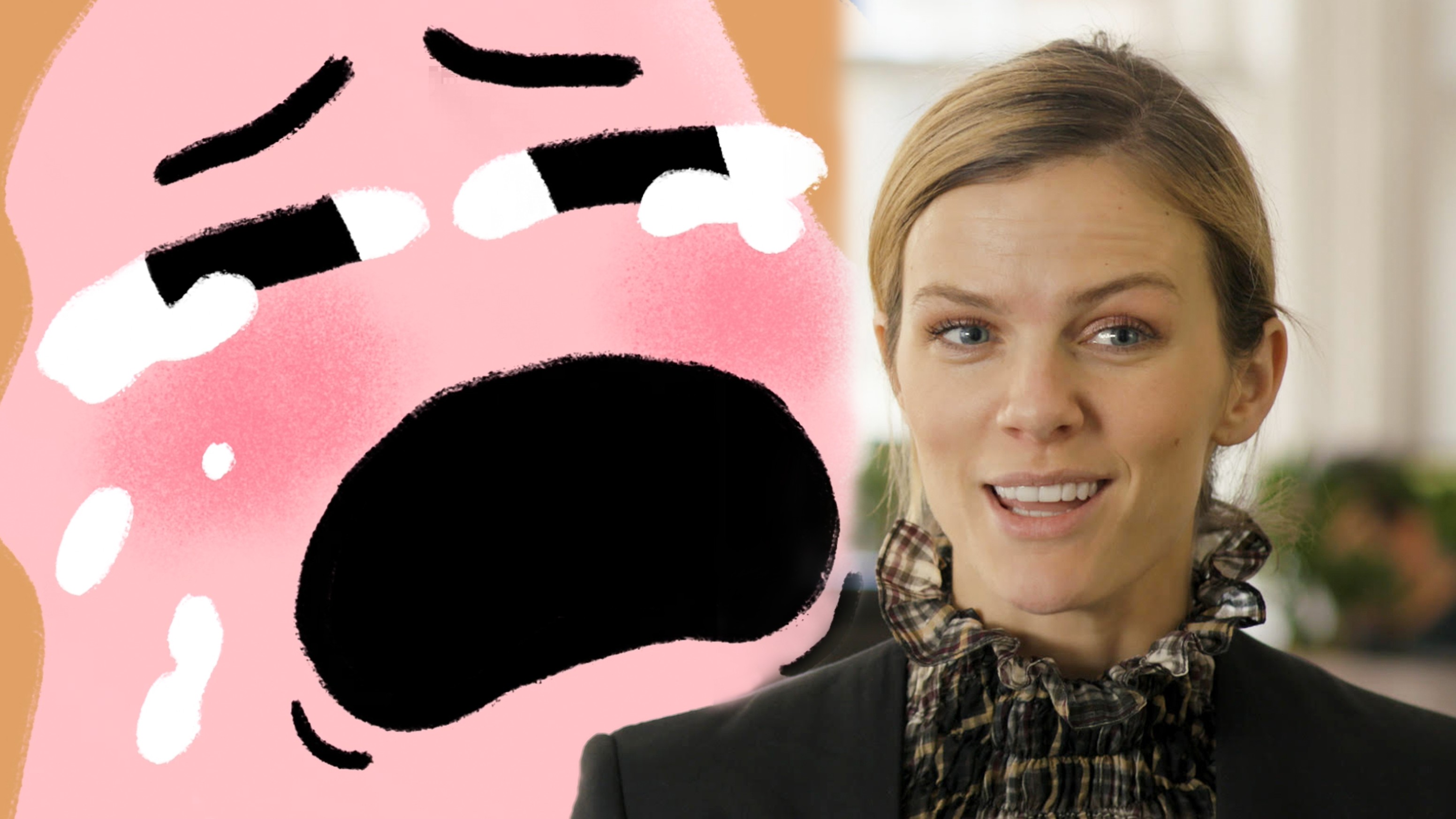This Is Fine. is a weekly newsletter from VICE about the highly personal tactics people use to make the world feel less harrowing. In this edition, Rachel Davies writes about a terrible-sounding car crash and the crossword puzzles it ended up making her love. Sign up here to receive a new essay about a dealing-with-life strategy via This Is Fine. each Sunday evening.The past year was one record-scratch moment after another. The first and most dramatic was when I was hit by a car.
I was exercising more than usual, seeing friends regularly, making nutritious meals, and earning enough money as a freelance writer to afford it all. Then, on one afternoon walk as I waited for the lights to change, I watched two cars collide. I considered how horrific it looked, only to realize that one car hadn’t been forced to a standstill. It was coming for me. The accident resulted in a painful busted ankle, making it impossible to walk for longer than 10 minutes. That was a 180 from before, when I primarily relied on long walks when I needed to come back to myself. This exacerbated my anxiety—I frequently had panic attacks upon leaving my apartment.
Shortly after the crash, I was offered a job in publishing in a city six hours away. The distance seemed encouraging: I wanted to manually reset my life, and God knows I felt restless.
After I moved, I hoped to explore my new surroundings, but I didn’t feel equipped to. Days were identical: After work, I laid in bed watching TV, eating frozen food that took little effort to make. On weekends, I rallied for short walks, but within minutes, I panicked and turned back. The feeling that hung above me since the accident intensified. I couldn’t recognize my life.
My freelance schedule allowed me the freedom to see friends all the time, but a 40-hour workweek and my chronic pain isolated me. Friends invited me to concerts, but I couldn’t watch other people frantically dancing without jealousy. At work parties, I wasn't able to mingle like everyone else, so I parked myself in one place and left early to minimize my body’s ache. People dressed up my situation by saying I was overreacting or insisting that I was resilient. A friend said that the accident had happened because the universe was balancing the scales for every positive thing that had happened to me before. To illustrate how lucky I was, an Uber driver recounted the story of a man who was in a coma for 28 years after being struck by a car outside of a convenience store. With each conversation, I felt my brain warping. It seemed that the progression of my life, if I were to put stock in what people said, meant becoming a public speaker who visits high school assemblies to lecture teens about life’s preciousness: The darkest outcome.
I woke up on the anniversary of the accident expecting to be “me” again, as if I lived under a curse with a clean expiration date. The curse didn't lift, so I dumped my job about a month later, attempting to get my life back on track. About four weeks into this uneasiness, I wound up in a bookstore. I felt little connection to the books, so I wandered to the puzzles section. On a whim, I bought the cheapest book of New York Times crossword puzzles. I quickly came to depend on it. Crosswords demanded my attention and distracted me from whatever outside forces seemed to be punishing me. They kept me company when I was bedridden. If I became overwhelmed running errands, I found somewhere to sit and fill in a puzzle. I got closer to friends that I had grown apart from: The reoccurring clue “Groundbreaking admission from Ellen in a 1997 TV show” with its corresponding answer, “IMGAY,” begged to be forwarded.
Crosswords resuscitated my old curiosity for the world, which attracted me to writing in the first place. The ease with which I penciled in the blanks confirmed the minuscule inkling that my brain did, in fact, house useful information. I was energized by organically stumbling upon the answer to a clue I was stuck on, whether I was at the grocery store, connecting the dots that nutmeg was the spice associated with both custard and eggnog, or visiting with a friend who coincidentally mentioned the answer to a movie clue, Barbra Streisand's Yentl. The ecstatic curiosity I felt doing crosswords was like getting excited about a pitch or engrossed in a novel. It galvanized me to get closer to that part of myself, square by square.
The accident resulted in a painful busted ankle, making it impossible to walk for longer than 10 minutes. That was a 180 from before, when I primarily relied on long walks when I needed to come back to myself. This exacerbated my anxiety—I frequently had panic attacks upon leaving my apartment.
Shortly after the crash, I was offered a job in publishing in a city six hours away. The distance seemed encouraging: I wanted to manually reset my life, and God knows I felt restless.
After I moved, I hoped to explore my new surroundings, but I didn’t feel equipped to. Days were identical: After work, I laid in bed watching TV, eating frozen food that took little effort to make. On weekends, I rallied for short walks, but within minutes, I panicked and turned back. The feeling that hung above me since the accident intensified. I couldn’t recognize my life.
My freelance schedule allowed me the freedom to see friends all the time, but a 40-hour workweek and my chronic pain isolated me. Friends invited me to concerts, but I couldn’t watch other people frantically dancing without jealousy. At work parties, I wasn't able to mingle like everyone else, so I parked myself in one place and left early to minimize my body’s ache. People dressed up my situation by saying I was overreacting or insisting that I was resilient. A friend said that the accident had happened because the universe was balancing the scales for every positive thing that had happened to me before. To illustrate how lucky I was, an Uber driver recounted the story of a man who was in a coma for 28 years after being struck by a car outside of a convenience store. With each conversation, I felt my brain warping. It seemed that the progression of my life, if I were to put stock in what people said, meant becoming a public speaker who visits high school assemblies to lecture teens about life’s preciousness: The darkest outcome.
I woke up on the anniversary of the accident expecting to be “me” again, as if I lived under a curse with a clean expiration date. The curse didn't lift, so I dumped my job about a month later, attempting to get my life back on track. About four weeks into this uneasiness, I wound up in a bookstore. I felt little connection to the books, so I wandered to the puzzles section. On a whim, I bought the cheapest book of New York Times crossword puzzles. I quickly came to depend on it. Crosswords demanded my attention and distracted me from whatever outside forces seemed to be punishing me. They kept me company when I was bedridden. If I became overwhelmed running errands, I found somewhere to sit and fill in a puzzle. I got closer to friends that I had grown apart from: The reoccurring clue “Groundbreaking admission from Ellen in a 1997 TV show” with its corresponding answer, “IMGAY,” begged to be forwarded.
Crosswords resuscitated my old curiosity for the world, which attracted me to writing in the first place. The ease with which I penciled in the blanks confirmed the minuscule inkling that my brain did, in fact, house useful information. I was energized by organically stumbling upon the answer to a clue I was stuck on, whether I was at the grocery store, connecting the dots that nutmeg was the spice associated with both custard and eggnog, or visiting with a friend who coincidentally mentioned the answer to a movie clue, Barbra Streisand's Yentl. The ecstatic curiosity I felt doing crosswords was like getting excited about a pitch or engrossed in a novel. It galvanized me to get closer to that part of myself, square by square.

Even when I don’t feel up to socializing or going on a walk, puzzles connect me to people: Because they’re made for a general audience, I'm pulled from my perspective into a wider one. Crosswords teach me about others' lives and encourage me to learn in new capacities. (A brief list of some new things I know: a fencing sword is an épée, Oleg Cassini is the man responsible for Jackie O's style, and Hawaii’s state bird is the nene.) They remind me of why I love the things I do, and why other people might love their things. Filling them in, I feel less restless. I feel close to the world. Follow Rachel Davies on Twitter and subscribe to their newsletter about crosswords.
